
Brittney Nichols highlights the need for early detection and stresses that lung cancer is not only caused by smoking; anyone can develop the disease.

Brittney Nichols highlights the need for early detection and stresses that lung cancer is not only caused by smoking; anyone can develop the disease.

In EGFR-mutated non-small cell lung cancer Tagrisso with pemetrexed and chemotherapy was associated with an improvement in survival.
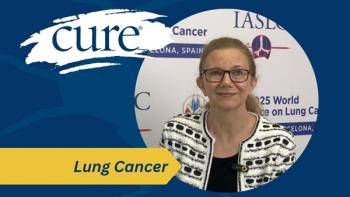
Dr. Mary B. Beasley discusses evolving role of pathologists in lung cancer care, highlighting how emerging technologies may shape the future of the field.

Ibtrozi may become the new standard for ROS1-mutated lung cancer, with phase 2 data showing safer, longer-lasting benefits for patients.

Dr. Jacob A. Sands shares how patients with lung cancer can interpret clinical trial results and how these findings translate to treatment decisions.

Dr. Joshua K. Sabari sat down with Terri Conneran at the 2025 World Conference on Lung Cancer for a conversation on the importance of biomarker testing.

Dr. Joshua Sabari spoke with advocate Chris Conneran on his journey from caregiver to champion for KRAS-mutant cancer patients and families.
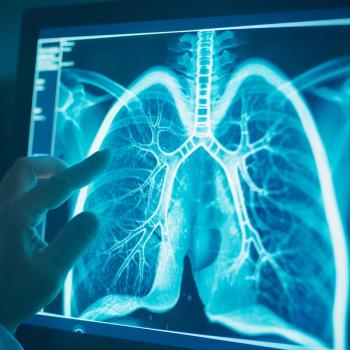
Lutathera demonstrated antitumor activity in patients with metastatic bronchopulmonary neuroendocrine tumors.

For patients with MET exon 14-altered NSCLC, Tepmetko was associated with frequent side effects, although the safety profile is considered manageable.

Dr. Josh Sabari and Max Doppelt explore challenges in trial enrollment and the potential of emerging therapies to offer hope for patients diagnosed today.
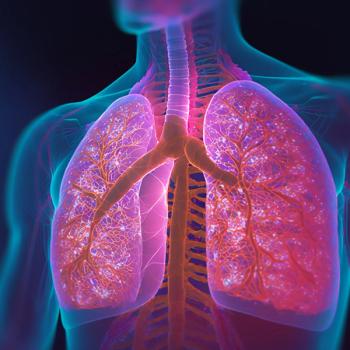
For patients with advanced non-small cell lung cancer who progressed on two or more prior regimens, THIO with Libtayo elicited positive responses.
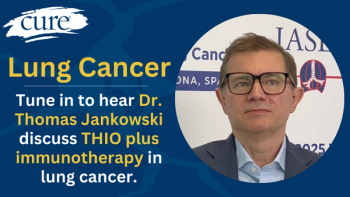
Dr. Thomas Jankowski explained that THIO, a telomerase inhibitor, is being studied with Libtayo to help overcome resistance in advanced lung cancer.
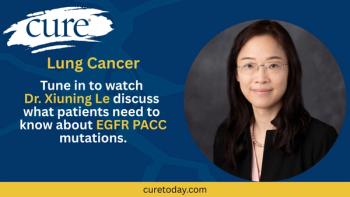
CURE spoke with Dr. Xiuning Le during the International Association for the Study of Lung Cancer (IASLC) 2025 World Conference on Lung Cancer.
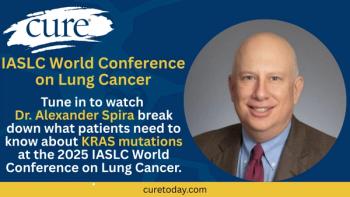
CURE spoke with Dr. Alexander Spira to learn what patients need to know about the KRAS G12C mutation and its treatment strategies.

In patients with EGFR-mutated NSCLC ivonescimab plus chemotherapy was associated with significant progression-free survival.
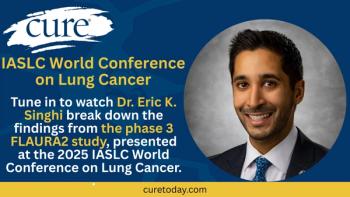
Dr. Eric Singhi sat down with CURE to break down the findings from the phase 3 FLAURA2 study, presented at the 2025 IASLC World Conference on Lung Cancer.
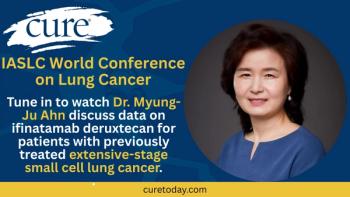
Dr. Myung-Ju Ahn shared notable data on ifinatamab deruxtecan for patients with previously treated extensive-stage small cell lung cancer.

People with EGFR+ NSCLC whose disease spread outside the brain after treatment with Tagrisso lived longer when they kept taking Tagrisso along with chemo.
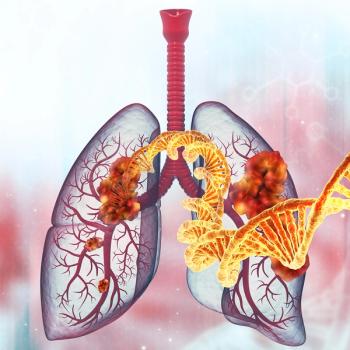
A combination of Iza-bren and Tagrisso showed beneficial results as an initial treatment for advanced/metastatic EGFR-mutated non–small cell lung cancer.

Never-smoker Leah Phillips, co-founder of the Young Lung Cancer Initiative, raises awareness that anyone with lungs can develop lung cancer.

A recent study compared two dosages of ifinatamab deruxtecan among patients with extensive-stage small cell lung cancer.

Rybrevant plus Lazcluze, compared with Tagrisso, showed a trend towards favorable overall survival in EGFR-positive advanced non-small cell lung cancer.

Recent study results demonstrated that an at-home prehabilitation program may improve surgical outcomes in patients with lung cancer.

A survey conducted by the LUNGevity Foundation determined that 96% of patients with lung cancer felt that they were concerned about the COVID-19 pandemic affecting their treatment.

New study results demonstrate that patients with lung cancer have experienced more worries and general distress during the COVID-19 pandemic compared to other patients with cancer.

Despite offering an increased number of services to patients, the decrease in funding as a result of the pandemic has put a strain on patient advocacy and support organizations around the world, leaving many, particularly those that specialize in the support of patients with lung cancer, in urgent need of financial support to continue to meet the increased need.
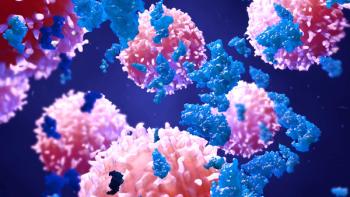
Keytruda monotherapy continued to significantly improve overall and progression-free survival in patients with previously treated, PD-L1–positive advanced non-small cell lung cancer.

Onivyde may offer patients with small cell lung cancer whose disease has progressed after initial chemotherapy a new treatment option, according to updated study results.

Treatment with immuno-oncology therapies induces better responses in younger patients with small cell lung cancer, compared to older patients.

Though there are currently few approved treatments for advanced, pre-treated small cell lung cancer (SCLC), this patient population may have a safe and effective new option in apatinib, according to updated data from a prospective phase 2 study.